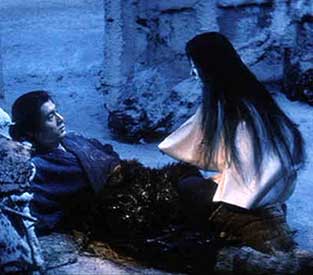Gamelan music (try the album, Music from the Morning of the World)
If you've never heard Japanese Nō music, find some on Youtube. If you've watched Japanese period movies (stories about samurais filmed by Kurosawa, etc.), you've probably heard the instruments used in the film scores.
Pachelbel's “Canon in D” (Lady Sheba's Theme Music)
Beethoven's 7thSymphony, 2ndmovement (Allegretto – though it has a lot more emotional impact when played slowly, like a dirge)
Gustav Holst – “Saturn, the Bringer of Old Age (my Default Majesty Music),” “Jupiter, bringer of Joviality,” and “Neptune the Mystic”
Alan Hovhannes – “Mysterious Mountain”
After you've checked out the Japanese Nō music on Youtube, look for The White-Haired Girl Ballet.
You may have heard Leopold Stokowsky's excellent arrangement of The Rite of Spring in the film score of Fantasia (the segment with the dinosaurs), but the original arrangement is pretty mind-blowing.
Tōru Takemitsu – Kwaidan score
Yasushi Akutagawa – Gate of Hell score
Billy Ray Cyrus – “Achy Breaky Heart”
Anatol Liadov – “The Enchanted Lake,” “Baba Yaga,” and Eight Russian Folk Songs for Orchestra (I think of “Sacred Verse” (no.1) as Gennady's Theme Song)
Duke Ellington – “Take the A Train” and “The Mooch”
I think I may have mentioned the main theme from the film score for Around the World in Eighty Days, composed by Victor Young. If I didn't mention it in this book, I definitely mentioned it in the sequel.
Irving Berlin – “There's No Business Like Show Business” (another piece that plays a big part in the sequel).
Benjamin Britten's Simple Symphony, “Playful Pizzicato”
Sergei Prokofiev – scores from Alexander Nevsky and Ivan the Terrible
Rimsky-Korsakov – “Hindu Song”
Franz Waxman – Rear Window(opening credits)
Rogers & Hammerstein – South Pacific (Kitten's favorite musical)
Johann Sebastian Bach – “Jesu, Joy of Man's Desiring”
Cab Calloway – “Mini the Moocher”
George Butterworth, “The Banks of Green Willow” (George died in the trenches in WWI, the same war that had such a profound effect on J.R.R. Tolkien)
Antônio Carlos Jobim – “The Girl from Ipanema” (pick your favorite elevator-music version)
I hope this list doesn't seem too long, and that you haven't gone cross-eyed trying to follow it. My ambition is to let people discover some new music or revisit old favorites. Once Medusa in the Graveyard is released (summer 2019), I'll do another one . . .


















